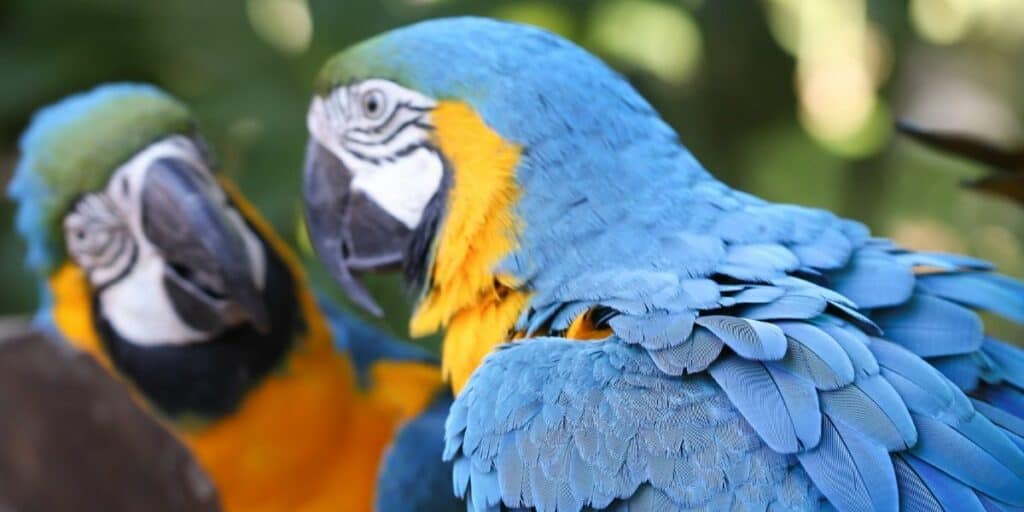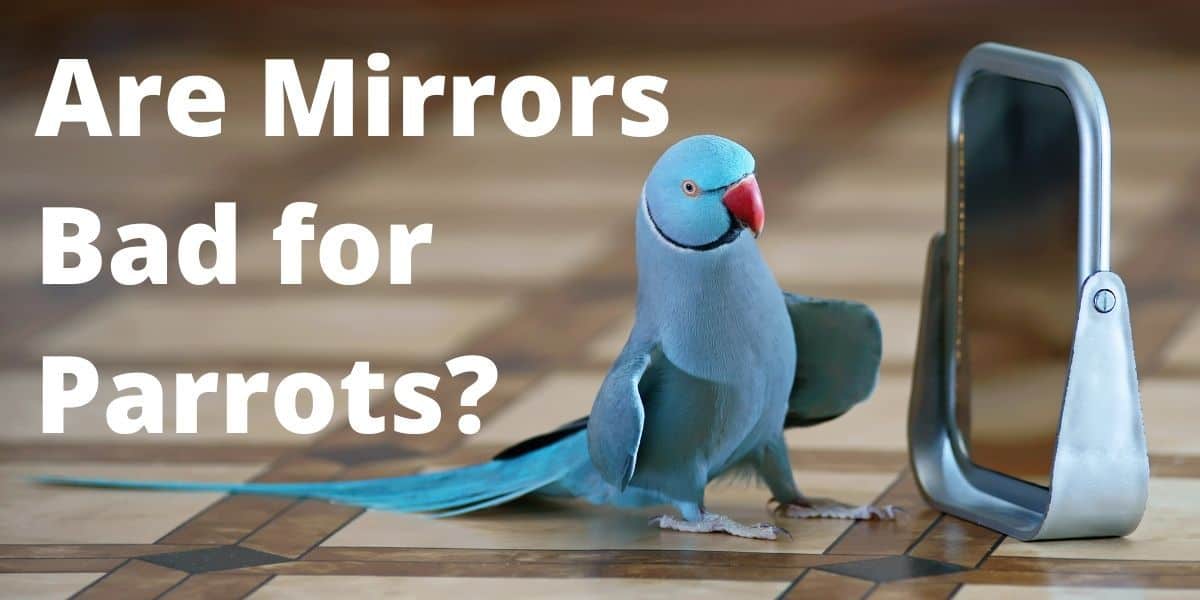Table of Contents
In case you were wondering, mirrors and parrots are not a good mix!
You may have observed your parrot sneaking a peek at their reflection in a shiny toaster or other reflective surfaces in your home.
But do not allow yourself to be tempted to feed this newfound interest on behalf of your bird.
Parrots cannot understand that their reflection is not another parrot which can be the beginning of a whole host of behavioral problems. Supplying a mirror can cause a harmful preoccupation that can have pervasive effects on your parrot’s behavior and socialization.
In this short article, we will take a look at the problems you can run into with mirrors and parrots. Mirrors can seem like an easy fix for a bored bird, but we will suggest some healthier alternatives for piquing the interest of your feathered friend.
What will a parrot do when it sees its reflection?
If you search online for “mirrors and parrots”, you will find many horrific accounts from owners that have found themselves falling down the rabbit hole of a parrot that is permanently preoccupied with a mirror.
When birds from the parrot family catch sight of their reflection it becomes the start of a ghoulish fascination, that is difficult to break because the poor bird believes it is seeing another parrot.

Try to remove the mirror and you are likely to be attacked or bitten!
Parrots will often use every waking hour to get over to the mirror and interact with this mysterious new bird to the neglect of just about everything else.
Can parrots recognize their reflection?
Animal studies are inconclusive on the ability of a parrot to recognize itself in a mirror. It is more likely that the parrot will initially conclude that there is another bird present.
The situation is confusing for the bird because though they see an image they do not hear responsive sounds.
Too much time to reflect!
A parrot can easily become attached to the mirror bird and form a strong bond. This can lead to a diminishment of the bond you enjoy with your pet as its attachment is moved to the mysterious character in the mirror.
Worse still, your parrot can then become jealous or protective of their mirror image, making them aggressive or territorial.
The silent visitor can itself be a source of frustration or threat to the bird leading to it becoming agitated or attacking the mirror. The defensive and threatening behaviors of the parrot are simply reflected via the mirror that can lead to the rapid escalation of distress.
Managing mirror addiction in parrots.
Prevention is always better than cure so keeping your parrot away from mirrors and reflective surfaces is a good idea.
If you are dealing with a parrot that has formed an attachment with a reflection of itself, your main strategy should be the provision of time care and lots of attention to these intelligent and engaging pets.
They have levels of cognition and intelligence comparable to great apes and so need to be properly occupied. Consider introducing new toys and talking to your parrot to counteract the incorrect perception of reality that comes from mirrors.
Solitary parrots can get lonely. If you think isolation is an issue, perhaps introducing a second parrot would make a difference.
On the other hand, your parrot needs to learn to keep themselves entertained without continuous attention. Either way, we hope you can see that a mirror will hold you and your parrot back from enjoying one another fully.




